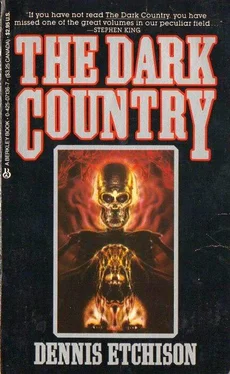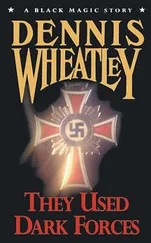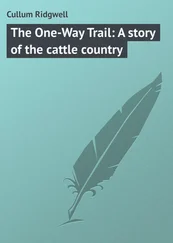"Your system runs on alcohol, Willy. You know that, don't you?"
"Don't all machines?"
"Myself, I could go for some eggs right now. How about you? What've we got left?" Martin went to the sink. It was full of floating dishes. "Hey, what the hell is it with the maid? We did remember to leave her a tip yesterday. Didn't we?"
"One of us must have."
That was it, then. That was why she had skipped them, and then snubbed him this morning. That had to be it. Didn't it?
The tape deck next door was now blaring a golden oldie by Steely Dan. Martin slid the glass door closed. Then he snagged his trousers from the back of a chair and put them on over his trunks. Started to put them on. They did not feel right. He patted his back pocket.
Will slid the door back open halfway. "You're serious, aren't you? Look at it this way. Leave it like this and the gas'll just blow on outside. Relax, man. That's what you came down here for, isn't it? After what happened, you need…"
Martin checked the chair. On the table were a deck of playing cards from a Mission Bay savings and loan, the backs of which were imprinted with instructions about conserving energy, a Mexican wrestling magazine with a cover picture of the masked hero, El Santo, in the ring against a hooded character in red jumpsuit and horns, and an old mineral water bottle full of cigarette butts. On the floor, lying deflated between the table legs, was his wallet.
"There's another reason, I'm afraid." Martin twisted open the empty wallet and showed it to his friend.
"Who in the hell.?"
"Well, it certainly wasn't the maid. Look at this place." Outside, a small local boy came trudging through the patios. He was carrying a leather case half as big as he was. He hesitated at the cabin on the south side, as three teen-aged American boys, their hair layered identically and parted in the middle, called their girls out into the sun. "It must have happened during the night."
"Christ!" said Will. He slapped the tabletop. He reached for his own wallet. It was intact. "There. I was over there partying all night, remember? They must've passed by every place where anybody was still up."
The small boy opened his case and the American girls began poring excitedly over a display of Indian jewelry, rings and belt buckles and necklaces of bright tooled silver and turquoise. From a distance, an old man watched the boy and waited, nodding encouragement.
"You should have gone with me," said Will. "I told you. Well, don't you worry, Jack. I've got plenty here for both of us."
"No, man. I can wire my agent or —»
"Look," said Will, "I can even kite a check if I have to, to cover the rental till we get back. They'll go for it. I've been coming here since I was a kid."
I've got to get away from here, thought Martin. No, that isn't right. Where else is there to go? I've come this far already just to get away. It's hopeless. It always was. You can run, he told himself, but you can't hide. Why didn't I realize that?
"Here," said Will. "Here's twenty for now."
"Are you sure?"
"Don't worry about it. I'd better go see if the nurses got hit, too. Saw a bunch of people in a huddle down the beach a while ago." He drained his glass. "Then I'll make another beer run.
The hell with it. We're gonna party tonight, God damn it! You going by the office, Jack?" "Sure."
"Then you might as well report it to the old lady. I think she's got a son or a nephew in the federales. Maybe they can do something about it."
"Maybe," said Martin, cracking open a beer. He could have told Will that it wouldn't do any good. He stopped in at the office anyway. It didn't.
He wandered on up the highway to Enrique's Cafe. On the way he passed a squashed black cat, the empty skin of it in among the plants, the blood-red flowers and spotted adder's tongues and succulents by the roadside. The huevos rancheros were runny but good. When he got back, Will's four-wheel drive was still parked under the carport. He took the keys and made the beer run into town himself, police cars honking him out of the way to make left turns from right-hand lanes, zigzagging across the busy intersections of the city to avoid potholes. He bought a case of Dos Equis and, for forty cents more, a liter of soft, hot tortillas. As the afternoon wore on he found himself munching them, rolled with butter and later plain, even though he wasn't really hungry.
That evening he sat alone on a bench by the rocks, hearing but not listening to a Beatles song ("Treat Me Like You Did the Night Before"), the smoke from his Delicado wafting on the breeze, blending with wood smoke from the chimneys and rising slowly to leave a smear like the Milky Way across the Pleiades. It's time for me to leave this place, he thought. Not to run away, no, not this time; but to go back. And face the rest of it, my life, no matter how terrible things may have turned back home since I left.
Not Will, though; he should stay awhile longer if he likes. True, it was my idea; he only took the time off at my suggestion, setting it all up to make me comfortable; he knew I couldn't take any more last week, the way things were up there. He's my friend. Still, he was probably waiting for just such an excuse in order to get away himself.
So I'll call or wire the agency for a plane ticket, give them a cock-and-bull story about losing everything — the truth, in other words. It was the truth, wasn't it? I'll say the trip was part of the assignment. I had to come down here to work on some new sketches for the book, to follow a lead about headstone rubbings in, let's see, Guanajuato. Only I never made it that far. I stopped off for some local color. Charge it against my royalty statement. I'll talk to them tomorrow. Yes, tomorrow.
Meanwhile, there's still tonight.
But I should tell Will first.
He resumed walking. There was a fire on the breakwater by the Point. He went toward it. Will would be in one of the cabins, partying with a vengeance. Martin glanced in one window. A slide show was in progress, with shots that looked like the pockmarked surface of another planet taken from space. He pressed closer and saw that these pictures were really close-ups of the faces of newborn seals or sea lions. Not that one, he thought, and moved on.
One of the parties he came to was in the big cabin two doors north of his own. That one was being rented, he remembered, by the producer of a show in the late seventies called STAR-SHIP DISCO. Martin had never seen it.
An Elvis Costello tape shook the walls. A young card hustler held forth around the living room table. A warm beer was pushed into Martin's hand by a girl. He popped the beer open and raised it, feeling his body stir as he considered her. Why not? But she could be my daughter, technically, he thought, couldn't she? Then: what a disgusting point of view. Then: what am I doing to myself? Then it was too late; she was gone.
Will was not in the back rooms. The shelf in the hallway held three toppling books. Well, well, he thought, there are readers down here, after all. Then he examined them — By Love Possessed by Cozzens, Invitation to Tea by Monica Lang (The People's Book Club, Chicago, 1952), The Foundling by Francis Cardinal Spellman. They were covered with years of dust.
He ducked into the bathroom and shut the door, seeing the mirror and razor blade lying next to the sink, the roll of randomly perforated crepe paper toilet tissue. There was a knock on the door. He excused himself and went out, and found Will in the kitchen.
"jDos cervezas, Juan!" Will was shouting. "Whoa. I feel more like I do now than when I got here!" With some prodding, he grabbed two cold ones and followed Martin outside, rubbing his eyes. He seemed relieved to sit down.
"So," began Martin. "What did you find out? Did anyone else get popped last night?"
Читать дальше











